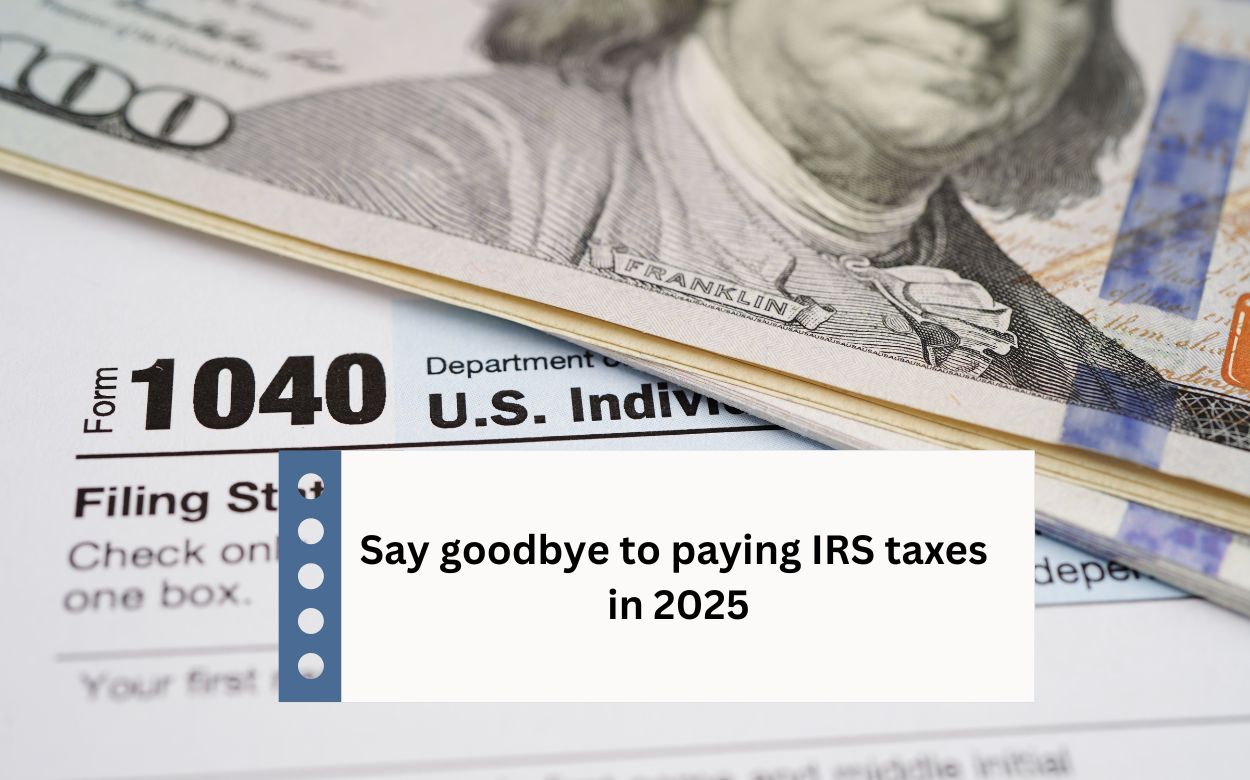Say Goodbye to IRS Taxes in 2025 – Here’s How You Can Escape Paying
Tax season begins with the new year, and while we all believe that taxes are unavoidable and for everyone, the fact is a little more complicated, with complicated laws and regulations imposed by the Internal Revenue Service. Knowing if you do not owe federal taxes is crucial, as this can influence your financial decisions throughout the year. While some, such as sales tax, cannot be avoided, state and income taxes can.

IRS updates taxes for 2025:
Every year, the IRS increases the marginal tax rates for payroll taxes to keep up with inflation.
- 10% for income. $11,925 or less.
- 12% for incomes above $11,925.
- 22% for salaries above $48,475.
- 24% for incomes above $103,350.
- 32% for salaries above $197,300.
- 35% of incomes exceeding $250,525
- 37% for salaries above $626,350.
The standard deductions have been increased, allowing people to pay less in taxes. According to the IRS, “For single taxpayers and married individuals filing separately for the tax year 2025, the standard deduction climbs to $15,000, up $400 from 2024. The standard deduction for married couples filing jointly increases to $30,000, up $800, beginning the tax year 2024. The standard deduction for heads of households will be $22,500 in the tax year 2025, up $600 from the tax year 2024.
Furthermore, persons who have had their salaries withheld may submit returns to collect those sums as refunds, provided they meet the requirements. Nonprofit organizations such as churches, hospitals, schools, and shelters, as long as they meet the conditions of the Internal Revenue Code and most Americans living overseas are tax-free.
Expats face more difficult laws, although individuals who live permanently abroad and earn less than $130,000 per year are not required to pay taxes in the United States. This is to avoid double taxation on income for most families, as individuals who live permanently overseas must also pay taxes in their new home nation.
Other notable changes include the inheritance tax having a basic exclusion level of $13,990,000 and the annual exclusion for gifts increasing to $19,000 per person. Other tax credits will also be changed, such as the Earned Income Tax Credit, now $8,046 for qualifying taxpayers with three or more qualifying children, up from $7,830 in the tax year 2024.
Significant deductions also allow for a reduction in taxable income, which may result in exemptions. High medical bills, mortgage interest, and charitable gifts are all legitimate deductions. For the tax year 2025, Medical Savings Accounts for self-only coverage demand an annual deductible of $2,850 to $4,300, up $50 and $150 from the prior year.


Comments are closed, but trackbacks and pingbacks are open.